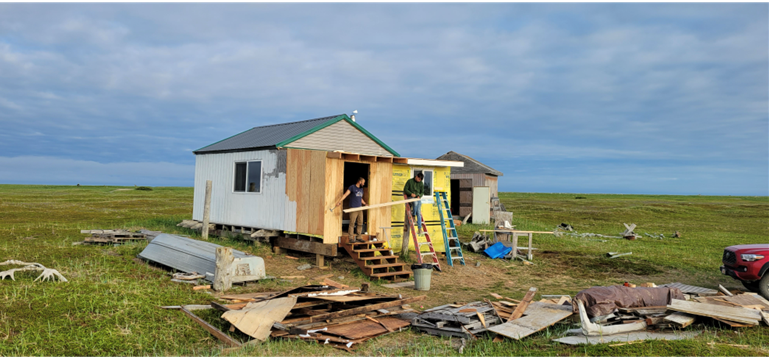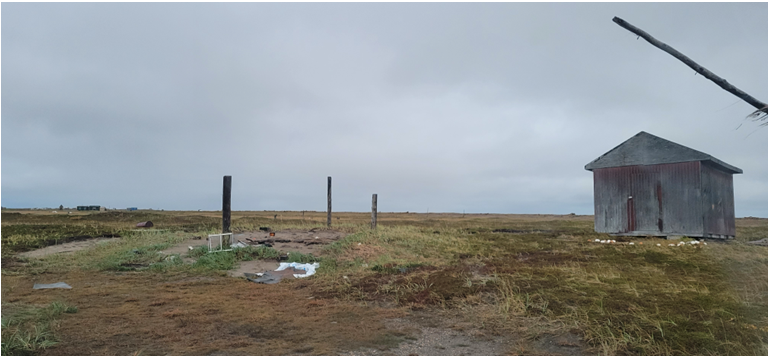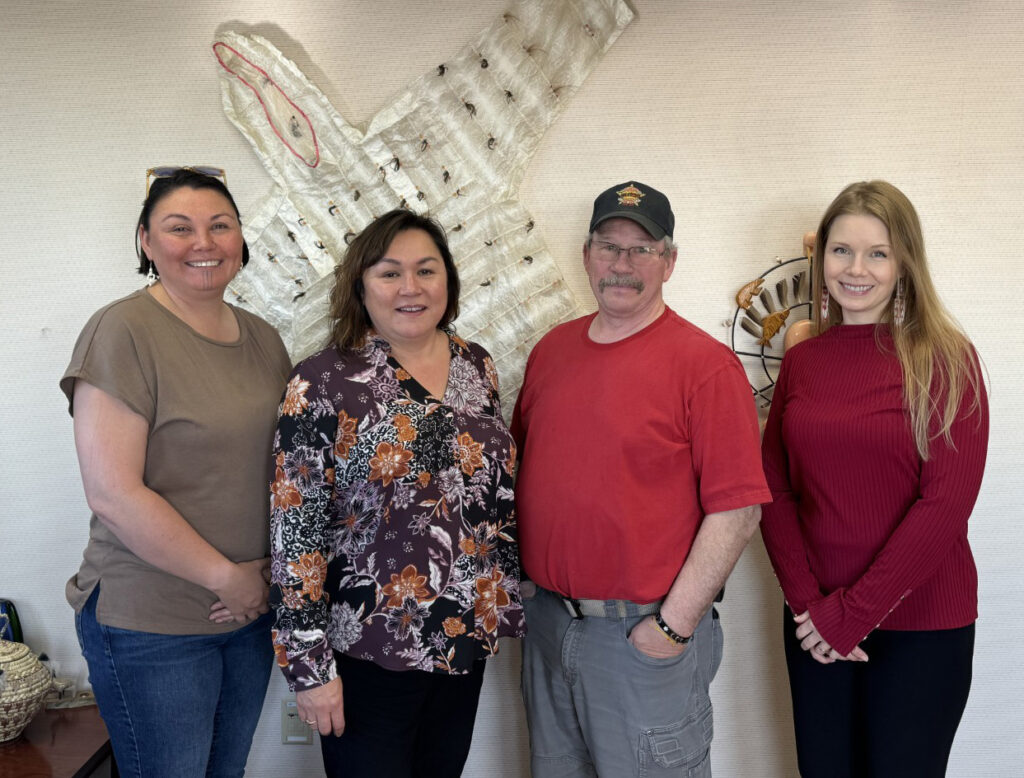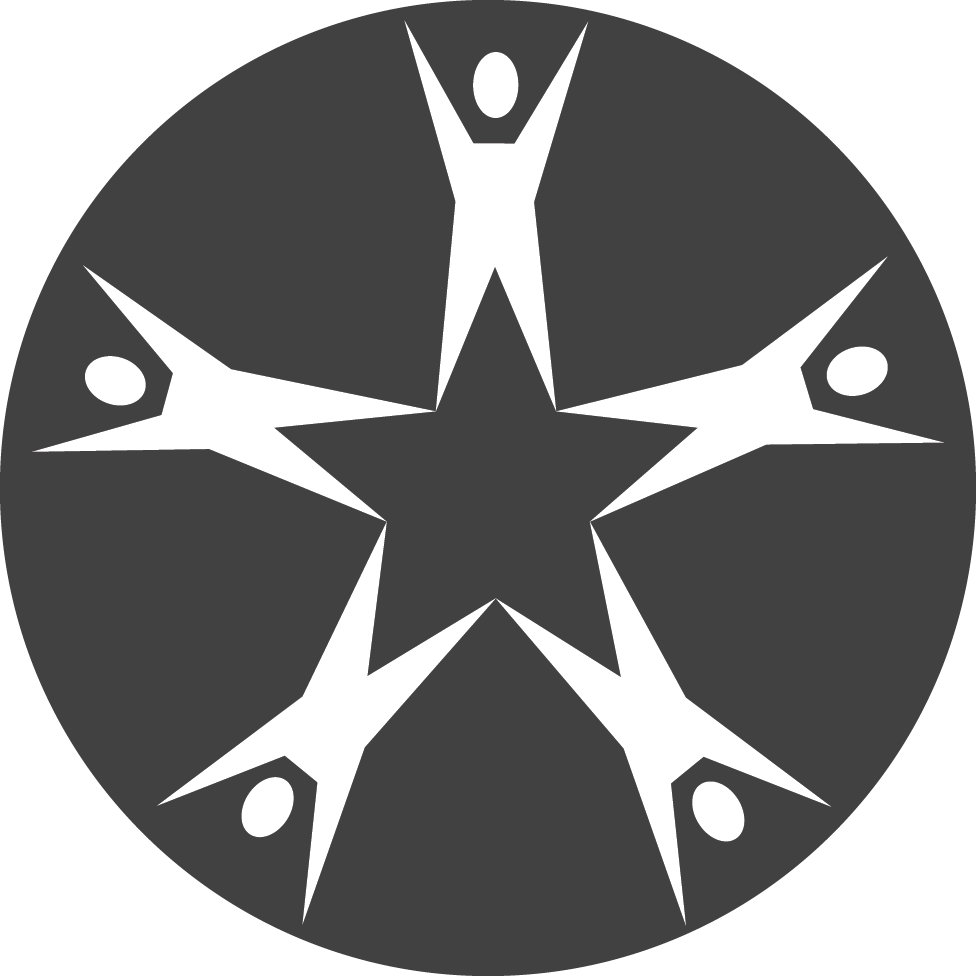More than two years ago, Typhoon Merbok tore through Western Alaska, leaving widespread devastation in its path. Entire communities were disrupted, and the damage was overwhelming. Homes, buildings, and vital fish camps and cabins were severely impacted or destroyed. Communities such as Hooper Bay, Scammon Bay, Golovin, Newtok, and Nome were among those hardest hit.
Throughout rural Alaska, fish camps and cabins are far more than simple structures—they are the lifeblood of families and communities. These spaces embody generations of heritage and serve as the cornerstone of cultural traditions. For years, they have been places where families gather to fish, hunt, and prepare food essential for their survival. In just a few hours, many of these lifelines were lost.


Top: Darlene Trigg’s nearly completed remodeled fishing cabin in Nome, Alaska, photographed just weeks before Typhoon Merbok struck in September 2022.
Bottom: What remained of Darlene’s cabin after the debris was cleared following Typhoon Merbok.
In the aftermath of the storm, the challenge of rebuilding was compounded by bureaucratic hurdles. To access state and federal relief, residents had to navigate a maze of paperwork—itemized lists, receipts, and even Small Business Administration loan applications. Imagine facing these demands while grappling with the grief of losing your home and the chaos of trying to rebuild your life. For many, it was overwhelming.
That’s where you, and many other caring individuals, families, and businesses stepped up. Through The Alaska Community Foundation’s (ACF) Western Alaska Disaster Recovery Fund, 2,795 donors contributed a remarkable $1.8 million. These funds were distributed to organizations like Kawerak, Inc., a nonprofit tribal consortium serving 16 communities in the Bering Strait Region.
Kawerak, a trusted partner of ACF, knows the communities in this region of Alaska deeply and took action immediately: organizing cleanup efforts, mailing food, distributing water filtration systems to nearly every home, and paving roads. They also stepped into a critical advocacy role, guiding hundreds through the disaster relief process to ensure they accessed the support they were entitled to—without unintended consequences like tax penalties or loss of other benefits.

The Western Alaska Disaster Recovery Fund enabled the Kawerak team to provide immediate support to all community members affected by Typhoon Merbok.
Left to right: Darlene Trigg, Melanie Behnke, Kevin Knowlton, and Sara Lizak
In addition to the financial support Kawerak received from ACF, Melanie Behnke, President of Kawerak, shared that knowing so many people from all over the world cared and wanted to help, provided hope and great comfort. She said, “In this very difficult time for the people of our region, we feel the kindness and support bestowed upon us by fellow Alaskans and so many others. We are appreciative of every single person who has donated and grateful to The Alaska Community Foundation for establishing the fund and providing the platform to make it so easy for so many to help.”
Among many stories of resiliency and recovery made possible by your contributions, Darlene Trigg’s stands out. Her family’s fish camp—a place passed on for generations to support their subsistence-lifestyle—was destroyed by the storm.
“My family’s fish camp has been part of my family for generations, and the cabin that Merbok destroyed was built by my dad. So, losing the fishing cabin, for me, it was like losing my dad all over again,” Darlene shared. With support from the Western Alaska Disaster Recovery Fund, Darlene could rebuild her fishing cabin. It’s now a space where her family gathers to honor traditions and create new memories, designed to endure future storms.
“It’s a full-circle moment,” Darlene said. “If it wasn’t for the help of your funding, we never could have rebuilt in the way that we did.”
The story of recovery in Western Alaska is one of resilience, community, and the extraordinary power of generosity. Thanks to the support of many, recovery efforts have gone beyond addressing immediate needs, creating a foundation for a stronger, more prepared future. In times of crisis, trust and compassion have proven to be the most powerful forces for change. People across the globe responded to help rebuild homes and recover cultural knowledge in a shared commitment to hope and resilience.

